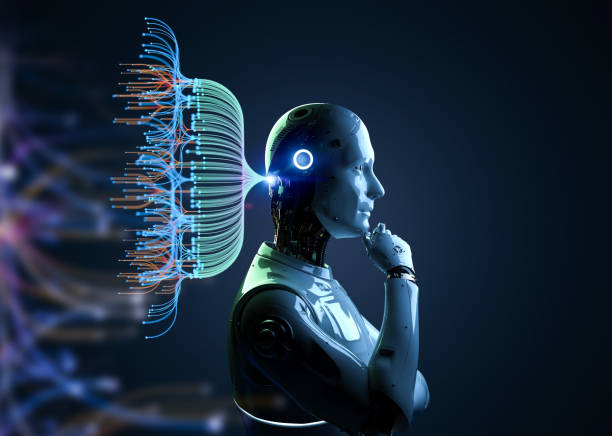AI For The Next Era: Predictions For 2025 And Beyond
Trending AI jobs in 2025 include Machine Learning Engineer, Data Scientist, AI Research Scientist, NLP Engineer, AI Product Manager, Robotics Engineer, and Computer Vision Engineer. These roles are experiencing high demand due to the increasing adoption of AI across various industries. Specific AI Job Roles and Descriptions:AI/ML Engineer:Focuses on designing, building, and maintaining AI systems that learn and improve from experience, using frameworks like TensorFlow and PyTorch. Data Scientist:Analyzes large datasets to identify patterns and insights that drive business decisions, employing statistical tools and algorithms. Robotics Engineer:Designs, builds, and programs robots for various applications, from manufacturing to healthcare.

How is machine learning expected to evolve by 2025?
Machine learning, a core component of AI, is anticipated to become more sophisticated and accessible. Experts predict that by 2025, we may see advancements in automated machine learning (AutoML) tools, making it easier for non-specialists to develop and deploy AI models. This democratization of AI could lead to wider adoption across industries, potentially increasing the demand for professionals who can guide and implement these technologies effectively.
What role might generative AI play in future innovations?
Generative AI, which includes technologies capable of creating new content, designs, and even code, is expected to see significant growth. By 2025, we may witness generative AI being integrated into creative processes, product development, and even scientific research. This could potentially open up new avenues for innovation and collaboration between humans and AI systems.
How might AI impact healthcare and medical research?
The healthcare sector is likely to see substantial AI integration by 2025. Predictive analytics for disease prevention, AI-assisted diagnostics, and personalized treatment plans could become more prevalent. Additionally, AI may accelerate drug discovery processes and enhance medical imaging analysis. These advancements could potentially create opportunities for professionals with both medical and AI expertise.
What developments are expected in natural language processing?
Natural Language Processing (NLP) is predicted to make significant strides by 2025. We may see more advanced language models capable of understanding context, sentiment, and even cultural nuances more accurately. This could potentially lead to more sophisticated chatbots, virtual assistants, and language translation tools, impacting industries from customer service to global communications.
How might AI shape the future of autonomous systems?
The field of autonomous systems, including self-driving vehicles and robotics, is expected to advance considerably by 2025. We may see increased integration of AI in transportation, logistics, and manufacturing. This could potentially lead to a growing need for professionals who can develop, maintain, and oversee these complex autonomous systems.
What ethical considerations might arise with AI advancements?
As AI becomes more prevalent and powerful, ethical considerations are likely to take center stage. By 2025, we may see increased focus on developing responsible AI frameworks, addressing bias in AI systems, and ensuring transparency in AI decision-making processes. This could potentially create opportunities for professionals specializing in AI ethics and governance.
How might the AI job market evolve in the coming years?
While it’s important to note that job markets can be unpredictable and subject to various factors, the growing integration of AI across industries suggests potential changes in the job landscape. Some areas that may see increased focus include:
-
AI research and development
-
Data science and analytics
-
AI ethics and governance
-
AI integration and implementation
-
Robotics and autonomous systems
It’s crucial to understand that these are potential trends rather than guaranteed job openings. The actual job market will depend on various economic, technological, and societal factors.
As AI continues to evolve, it’s likely to create both challenges and opportunities across various sectors. While the specific impact on job markets remains to be seen, staying informed about AI trends and continuously updating skills may help professionals adapt to the changing landscape. As we look towards 2025 and beyond, the field of AI promises to be an exciting and dynamic area of innovation and growth.




